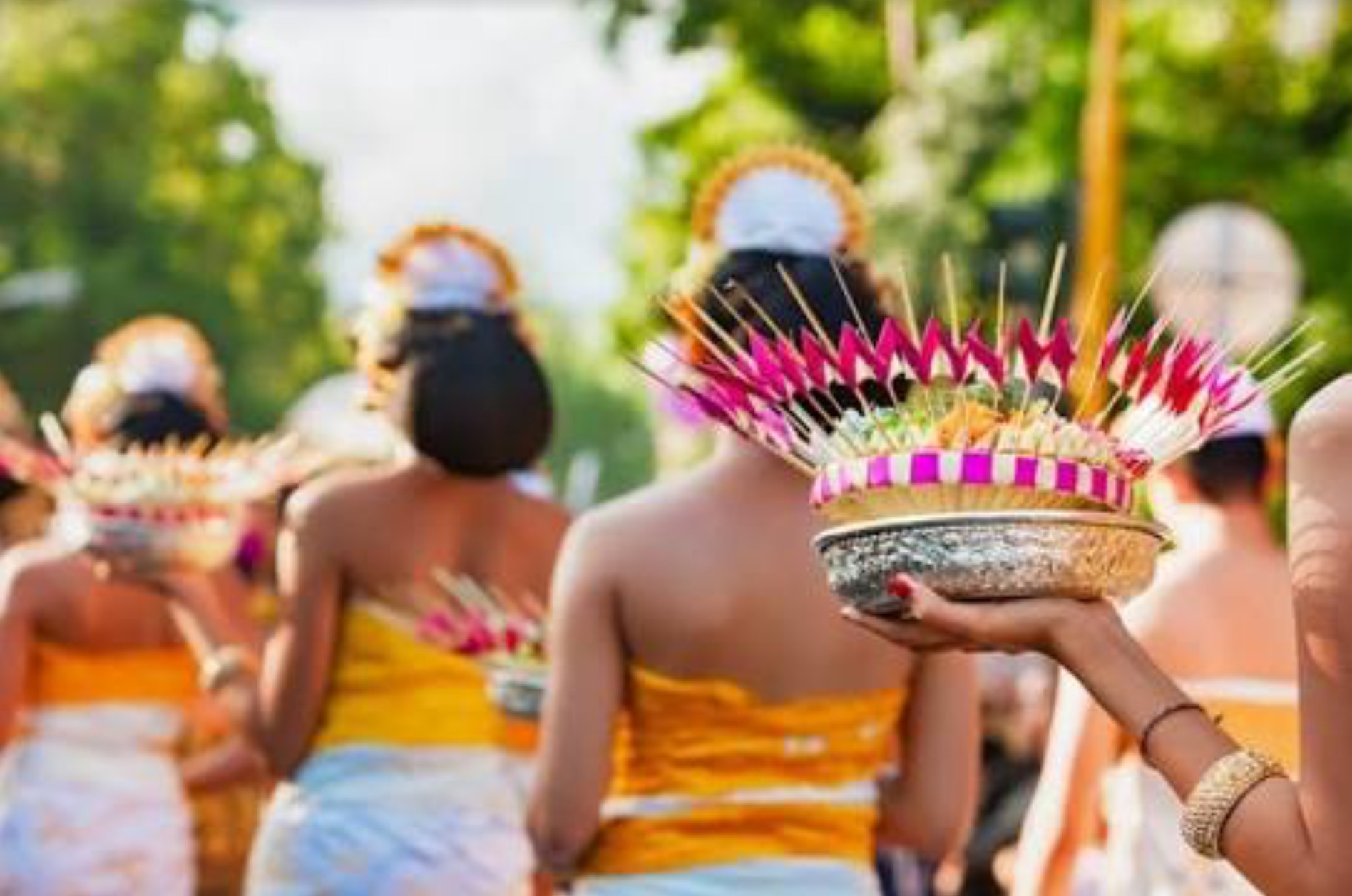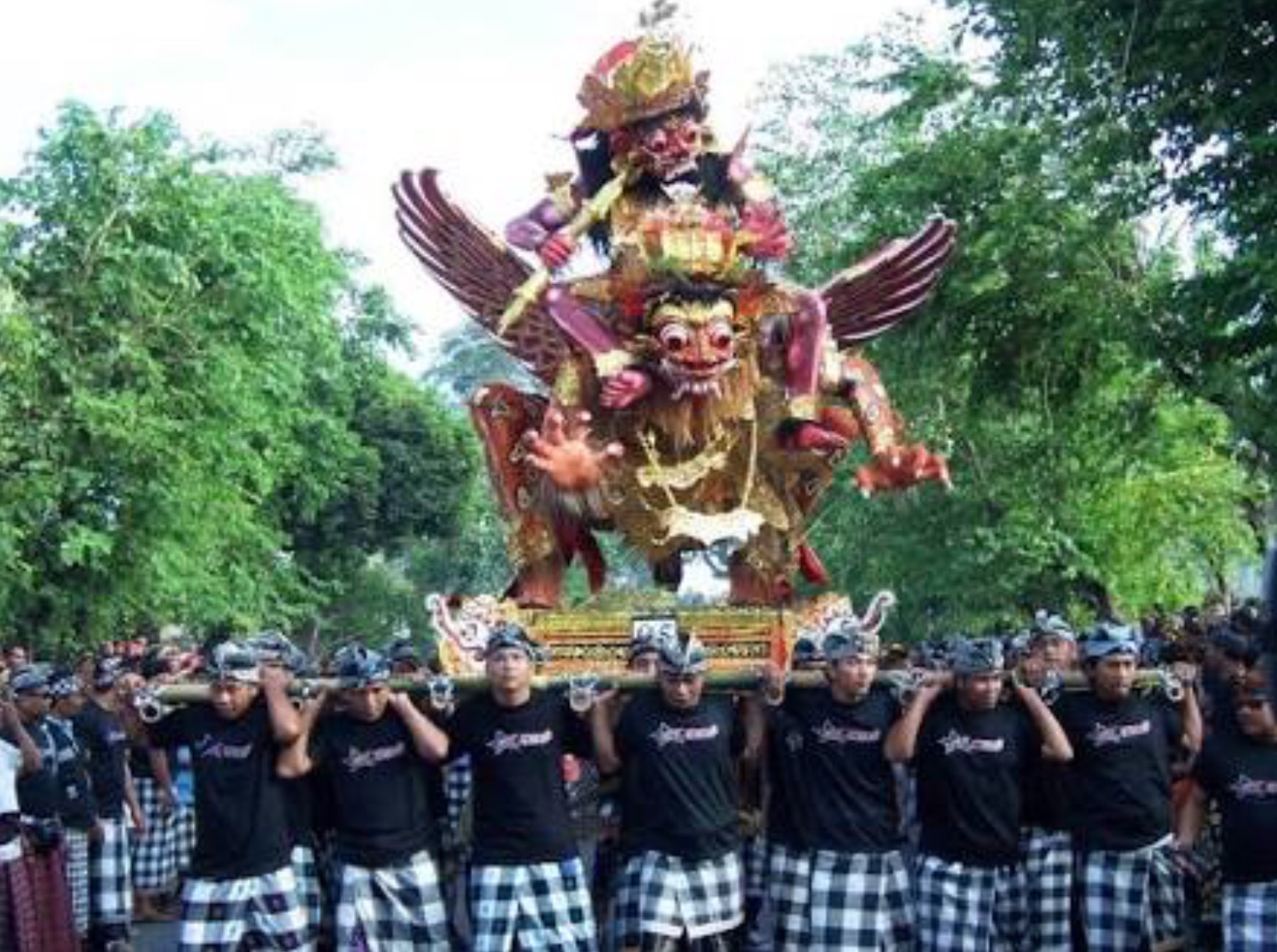
09 Mar Balinese New Year

Balinese New Year: ogoh ogoh.
Unlike any other New Year’s celebration across the globe, the height of the Balinese New Year 6 day celebration is a full day of complete silence.
A series of rituals are conducted across the island to prepare for Nyepi, bringing purification and offering sacrifices to Batara Kala – God of the Underworld. Two months prior, the young male adults of each village gather to craft with pride, demonic giant statues from bamboo and paper, symbolising malevolent spirits. At sunset of Day 2, the ritual of the ogoh ogoh takes place, in which these intimidating statues are paraded through the streets to a deafening mixture of bamboo bell, gamelan and drums with the objective of scaring evil spirits away. That evening, the ogoh ogohs will be ceremoniously burnt symbolising the eradication of life’s evil influences. The evening continues with dancing, drinking and feasting in a somewhat chaotic fashion intended to drive evil spirits far from the island.
On the third day, the entire island comes to a standstill – even Ngurah Rai airport in Denpasar ceases to function! This day is referred to as Nyepi, translating to “keep silent”. From a mythical perspective, following the lively celebrations of the first few days, the island goes into hiding to protect itself from the evil spirits, fooling them to believe that Bali, immersed in an atmosphere of complete tranquility and peace, is a deserted island.
Nyepi is a day that the Hindu Balinese dedicate completely to connecting more deeply with God through prayer, fasting and meditation. The day allows for self introspection to evaluate personal values such as love, truth, patience, kindness and generosity. The inner and outer world are expected to be clean and everything starts anew, with Balinese showing their symbolic control over themselves and the “force” of the world.
Absolute silence is observed, with no tolerance for fire or light, any form of physical work, any movement or travelling, self entertainment, revelry or excess. All shops are closed, the roads are empty, hotels must cover their windows and no light or candle will be lit in any Balinese home.
The following day is considered the first day of the New Year, when social activity picks up again quickly, as families and friends gather to ask forgiveness from one another.

Offerings on their way to ceremony.
It is indeed a special experience, not only for the Balinese, but also for all the visitors and tourists that are on Bali during this time. Areas such as Denpasar, Kuta, Ubud and Sanur usually hold contests for the best ogoh ogoh. This year Nyepi (day of silence) falls on March17th.
Bali Eco Stay will close for business from the 16 – 18 March in an effort to respect the religious traditions of our staff and allow them valuable family time.


Ronnie Porter
Posted at 12:02h, 09 MarchI always love Nyepi up in the mountains. But check if your accommodation is open. Bali Eco Stay give their staff a holiday for Nyepi.